- Federation of Automobile Dealers Association
- FADA
- C S Vigneshwar
- auto retail
- two-wheeler
- three-wheeler
- passenger vehicles
- tractors
- commercial vehicles
- electric vehicles
- Diwali
Auto Retail Sales Grow 11% In November, FADA Hopes For Stable Sales In December
- By MT Bureau
- December 09, 2024
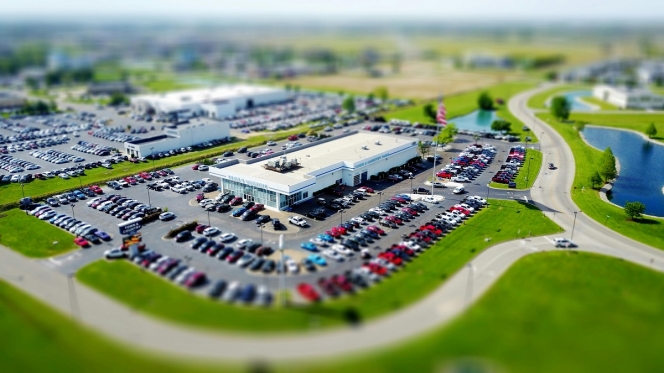
The Federation of Automobile Dealers Association (FADA) has released the automotive retail sales data for November, which saw a total of 3,208,719 vehicles sold across categories, marking a 11.2 percent growth over November 2023.
This saw two-wheelers clocking its best-ever performance for the month at 2,615,953 units, up 15.8 percent YoY, three-wheeler at 108,337 units, up 4.2 percent YoY, passenger vehicles sales at 321,943 units, down 13.7 percent YoY, tractors sales at 80,519 units, up 29.8 percent YoY and commercial vehicles sales at 81,967 units, down 6 percent YoY.
C S Vigneshwar, President, FADA, stated, “While November was initially expected to build on its prior momentum, particularly due to the marriage season, dealer feedback suggests that this segment underperformed overall expectations. Although rural markets offered some support, primarily in the two-wheeler category, marriage-related sales remained subdued. The late occurrence of Deepawali at the end of October also caused a spillover of festive registrations into November, affecting the month’s sales trajectory.”
He shared that while November sales in certain segments were at record high, the marriage season’s contribution fell short of expectations, offering only limited relief from rural India.
The passenger vehicles sales in particular faced notable headwinds, on the back of weak market sentiment, limited product variety and insufficient new launches, compounded by the shift of festive demand into October.
“Although rural interest was present, it failed to significantly improve sentiment.
Inventory levels have reduced by about 10 days, but to remain high at around 65-68 days. FADA continues to urge OEMs to further rationalise inventory so that the industry can enter the new year on a healthier footing, reducing the need for additional discounts,” stated Vigneshwar.
On the CV sales he explained that the segment also struggled due to restricted product choices, older model issues, limited financier support, and the absence of major festivals in November following a strong October.
“External elements such as elections, a slowdown in coal and cement industries, and weak market sentiment also weighed heavily on this category,” he said.
Going forward he expects that with the prospects of a bumper Kharif harvest is likely to temper food inflation and the broader macroeconomic environment appears will improve, potentially aiding consumer sentiment in the months ahead.
“However, the immediate December outlook derived from dealer feedback is mixed. Category-wise Expectations:
Two-wheelers: Dealers suggest that while some buyers remain hesitant—either awaiting new-year models or influenced by subdued post-festive sentiment—others could be drawn by potential year-end discounts and stable rural demand. Although momentum may not be robust, incremental schemes and easing inflation could lend mild support, placing two-wheeler on a cautiously positive footing.
Passenger vehicles: In the passenger vehicles segment, heavy discounting and improved product availability are expected to help offset weak consumer sentiment and a general year-end lull. While some customers are deferring purchases for new-year models, overall interest could pick up due to aggressive offers and end of year promotions. This sets a tone of cautious optimism, with a moderate chance of improved sales compared to November.
Commercial vehicles: The commercial vehicles category faces a more challenging environment. Factors such as subdued infrastructure activity and customers holding back for newer model-year vehicles continue to dampen demand.
“Nonetheless, selective OEM schemes and year-end offers may provide a limited lift. On balance, while the CV segment’s expectations are not uniformly positive, there is some hope that targeted incentives and stable financing conditions could prevent a sharper decline. In sum, while the near-term outlook for December is not overwhelmingly strong across segments, it leans towards stability with pockets of potential growth, underlining a sentiment that remains overall remains cautiously optimistic.
| Category | Nov '24 | Nov '23 | Change (in units) | Change (in %) | Sept '24 | Change (in %) |
| YoY | YoY | MoM | ||||
| Two-wheeler | 2,615,953 | 2,258,970 | 356,983 | 15.80% | 2,065,095 | 26.67% |
| Three-wheeler | 108,337 | 103,939 | 4,398 | 4.23% | 122,846 | -11.81% |
| E-Rickshaw (P) | 40,391 | 41,718 | -1,327 | -3.18% | 43,982 | -8.16% |
| E-Rickshaw with Cart (G) | 5,423 | 3,188 | 2,235 | 70.11% | 5,892 | -7.96% |
| Three-wheeler (Goods) | 10,940 | 10,524 | 416 | 3.95% | 12,709 | -13.92% |
| Three-wheeler (Passenger) | 51,466 | 48,418 | 3,048 | 6.30% | 60,169 | -14.46% |
| Three-wheeler (Personal) | 117 | 91 | 26 | 28.57% | 94 | 24.47% |
| Passenger Vehicle | 321,943 | 373,140 | -51,197 | -13.72% | 483,159 | -33.37% |
| Tractor | 80,519 | 61,996 | 18,523 | 29.88% | 64,433 | 24.97% |
| Commercial Vehicle | 81,967 | 87,272 | -5,305 | -6.08% | 97,411 | -15.85% |
| LCV | 47,530 | 49,751 | -2,221 | -4.46% | 56,015 | -15.15% |
| MCV | 5,473 | 5,476 | -3 | -0.05% | 6,557 | -16.53% |
| HCV | 24,441 | 27,635 | -3,194 | -11.56% | 29,525 | -17.22% |
| Others | 4,523 | 4,410 | 113 | 2.56% | 5,314 | -14.89% |
| Total | 3,208,719 | 2,885,317 | 323,402 | 11.21% | 2,832,944 | 13.26% |
Representational image: David McBee/Pexels
- JSW Motors
- Tata Indian Institute of Skills
- Tata IIS
- JSW Group
- EV
- Rupam Singh
- Skilling
- skill training
- Venguswamy Ramaswamy
JSW Motors And Tata Indian Institute Of Skills Partner For EV Manufacturing Training
- By MT Bureau
- February 26, 2026
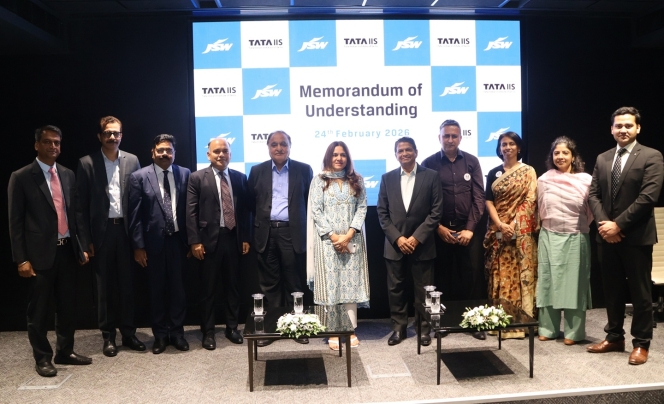
JSW Motors, the new energy vehicle (NEV) arm of the JSW Group, has signed a Memorandum of Understanding (MoU) with the Tata Indian Institute of Skills (Tata IIS). The partnership establishes a technical talent pipeline for JSW Motors’ greenfield manufacturing plant currently under construction in Chhatrapati Sambhajinagar, Maharashtra.
The collaboration focuses on a co-developed curriculum covering EV systems, automation, welding, CNC operations, battery systems and manufacturing. JSW Motors maintains rights over curriculum validation and hiring to align with plant ramp-up schedules.
Tata IIS was selected based on its training infrastructure and experience in OEM engagement. The programme utilises application-based training designed for the requirements of electric vehicle production.
The initiative is part of a broader roadmap to create an EV-ready ecosystem including suppliers, vendors and dealer networks. JSW Motors eventually intends to establish an in-house training academy focused on mobility technologies and manufacturing.
Rupam Singh, Chief Human Resources Officer, JSW Motors, said, “At JSW Motors, skilling is not an HR function, it is a business imperative. As we build our manufacturing operations, we need people who are ready from Day One. The Tata IIS partnership gives us structured capability, relevant curriculum, and the execution rigour aligned to our timelines. This is a deliberate bridge as we work towards building our own world-class training academy.”
Venguswamy Ramaswamy, CEO Designate, Tata Indian Institute of Skills, said, “At Tata IIS, our mission is to solve the nation’s skill challenges by creating a next generation workforce that is not just job-ready, but future-ready. This partnership with JSW Motors is a significant step toward that goal. By designing bespoke programs in Advanced Manufacturing, we are equipping India's youth with the high-precision skills required to drive the next generation of automotive excellence and ensuring a robust, consistent talent pipeline for our industry partners.”
IR Power Launches Energy Recovery Solution For Industrial Applications
- By MT Bureau
- February 26, 2026
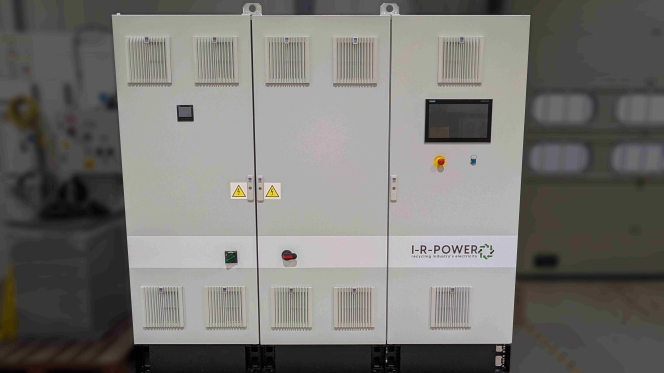
IR Power, a Scottish energy technology firm owned by MWNW Group, has introduced a standardised system designed to capture and reuse electricity wasted during industrial machine deceleration. The solution utilises a rental model where manufacturers pay through verified energy savings rather than upfront capital expenditure.
Industrial machines, such as automotive presses, conveyor systems and mixers, generate electricity when slowing down. In standard operations, this energy is typically dissipated as heat. IR Power’s technology claims that it captures this power and feeds it back into the factory grid for immediate reuse.
The system operates similarly to regenerative braking in electric vehicles. On machine clusters with frequent cycles, such as automotive press lines, the technology recaptures 10-20 percent of total electricity consumption. At current UK energy prices, this represents annual savings of GBP 50,000-100,000 per cluster.
Key features of the IR Power system include:
- Standardised Design: Three product sizes replace custom engineering, reducing technical complexity.
- Plug-and-Play Installation: Systems connect to existing equipment within hours without requiring modifications to the machines or production downtime.
- Equipment Agnostic: The technology integrates with hardware from any manufacturer, allowing for site-wide energy recovery networks.
- Fail-Safe Operation: Excess energy is routed to existing waste resistors if system capacity is exceeded, preventing manual restarts or shutdowns.
The launch comes as industrial electricity prices have risen to GBP 100-150/MWh. IR Power has adopted a zero-risk rental model to address adoption barriers. Under this framework, monthly fees are based on measured savings; if the system does not perform, the customer is not charged.
The company is initiating commercial deployments in Q1 2026, with a focus on tier-one automotive and construction materials manufacturing.
Richard Bradshaw, Founder and Managing Director, IR Power, said, "For years, energy recovery systems existed but didn't deploy at scale because they cost too much and put all the risk on customers. We've inverted that model completely. Our customers pay zero upfront – no capital expenditure, just operating expense. Installation takes hours with no production downtime. And here's the key: if our system doesn't save them money, we don't get paid; we take all the performance risk. The equipment lasts 15-20 years, so customers get over a decade of pure savings. The technology works – it always has. Our job was removing every barrier that prevented adoption: the cost, the complexity, the risk, and the disruption."
Zelio E-Mobility Opens New Plant In Cuttack to Expand Eastern India Operations
- By MT Bureau
- February 24, 2026
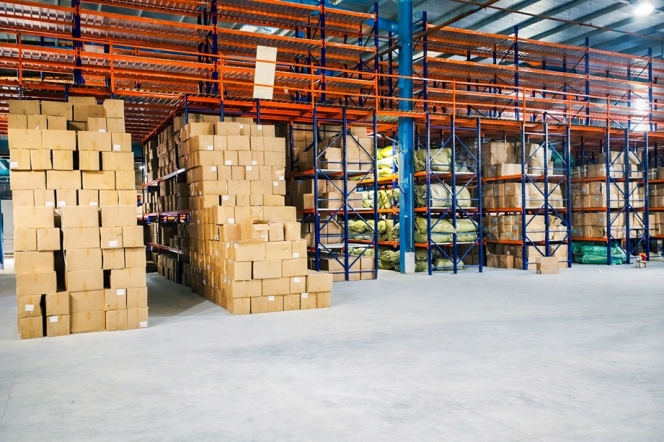
Zelio E-Mobility, a manufacturer of electric two-wheelers and three-wheelers, has announced the opening of a new manufacturing facility in Cuttack, Odisha. The plant is intended to support demand in Odisha and West Bengal while positioning the company for growth in southern India.
The commissioning of the Odisha facility, combined with optimisations at the existing Hisar plant in Haryana, has increased the company's total annual production capacity from 72,000 units to 180,000 units.
The Cuttack plant adds a capacity of 60,000 units per annum. Simultaneously, the Hisar facility has seen its capacity enhanced from 72,000 to 120,000 units through the installation of machinery and extended conveyor systems.
By locating production closer to the eastern markets, the company aims to reduce delivery timelines and logistics costs. Currently, shipping products from Haryana to the eastern region takes approximately one week.
The facility required an investment of under INR 30 million and is now operational. It is expected to create between 60 and 100 jobs for local individuals in production and operations. The company is currently in discussions with the Odisha government regarding incentives and support programmes.
Zelio E-Mobility clocked INR 1.34 billion in revenue in H1 FY2026, with net profit of INR 118.7 million. Recently, the EV company raised funds through SME IPO and has INR 360 million of unutilised funds, which it has earmarked for the current expansion. It aims to have over 337 dealerships across more than 20 states.
Kunal Arya, Managing Director, Zelio E-Mobility, said, “Eastern India has emerged as one of our strongest growth regions, with customers showing exceptional trust in our products. Setting up the Cuttack facility brings us closer to our riders and dealers, enabling faster deliveries, lower logistics costs and improved serviceability. Notably, this expansion marks an important step in strengthening India’s EV ecosystem and creating long-term value for our customers and partners.”
Skoda Auto Volkswagen India Begins Production Of New Skoda Kushaq At Pune Facility
- By MT Bureau
- February 23, 2026
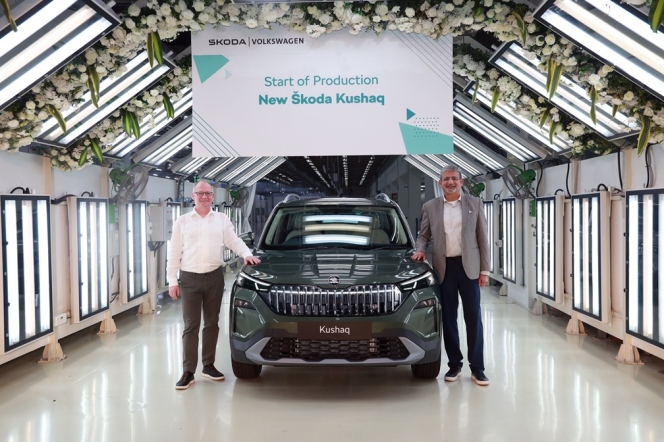
Skoda Auto Volkswagen India (SAVWIPL), one of the leading passenger vehicle manufacturers, has started production of the new Kushaq SUV at its manufacturing plant in Chakan, Pune.
The vehicle is a continuation of the Group’s INDIA 2.0 strategy, which focuses on localisation and manufacturing for both domestic and international markets.
Originally launched as the first model under this strategy, the Kushaq contributed to the Group’s sales of 117,000 units in 2025. The updated version follows its world premiere in January 2026, with customer deliveries scheduled to begin in March.
The new Kushaq maintains its focus on driving dynamics and safety standards. Updates to the model include a panoramic sunroof, a rear-seat massage function and the introduction of an 8-speed automatic transmission option.
The SUV is produced with a focus on high localisation to manage ownership costs and parts availability. It serves as a base for export operations from India to various global markets.
Andreas Dick, Board Member for Production and Logistics, Skoda Auto, said, "For us, the Kushaq holds a very special place as the first car developed specifically for a market outside Europe and born from true collaboration between India and the Czech Republic. The start of production of the new Kushaq in Pune in such a short span of time highlights how strongly India is integrated into our global manufacturing ecosystem. The robust production quality, combined with the continuous improvement in our processes, allows us to deliver feature-packed vehicles that meet domestic expectations and international standards. Kushaq’s continued success underlines how India is not only a key growth market but also an increasingly important production and export base for our global operations."
Piyush Arora, Managing Director & CEO, SAVWIPL, said, “The new Kushaq is an evolution and continues to be a key pillar in our mission to bring European engineering excellence within reach of Indian families. This SUV embodies our DNA with its robust design, advanced features and uncompromising safety. Listening closely to our customers, we have added several premium features such as a Panoramic Sunroof, rear-seat massage function and a new 8‑speed automatic transmission option, making it an even more compelling offering. With the start of production, we reaffirm our long-term commitment to India and to positioning it as a strategic manufacturing hub.”
Ashish Gupta, Brand Director, Skoda Auto India, added, “The Kushaq has been a transformative product for Skoda in India. As our first model under the INDIA 2.0 strategy, it marked the beginning of a new chapter, one that combined high localisation, world-class manufacturing at Pune, a deep understanding of Indian customers, and our commitment to democratising technology for the Indian market. With the new Kushaq, we are further building on that strong foundation, delivering European driving dynamics and 5-star safety that customers associate with Skoda.”






Comments (0)
ADD COMMENT